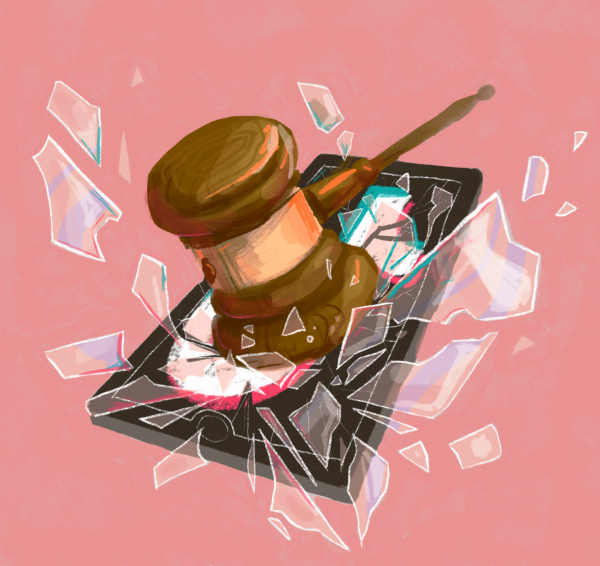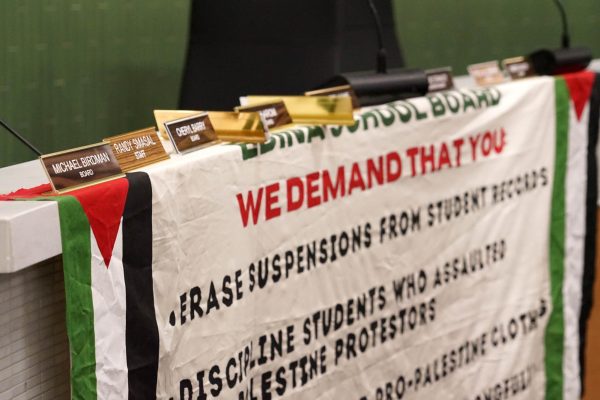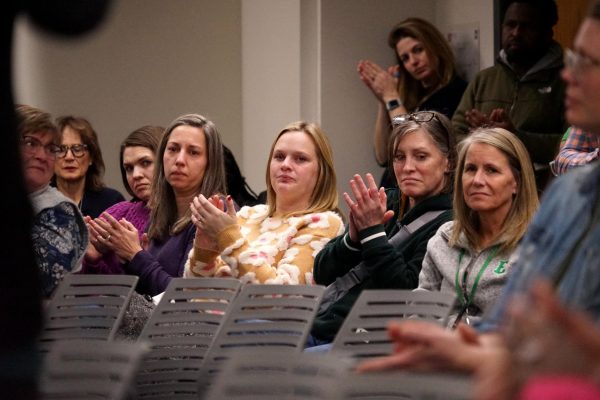EHS attendance policy changes with start of new school year
Art By: Iris Libson. A student is late to class.
October 12, 2022
At the start of the school year, Edina High School announced new attendance policies with stricter enforcement due to excessive tardies and absences last school year. These changes focus on having teachers enforce attendance for their individual classes rather than having administration deal with absences on a large scale.
By shifting the focus of attendance from a cumulative point of view to a more class to class-based system, EHS administration hopes to improve communication about absences as well as overall attendance. “The whole point is to try to make it faster to be able to address a situation with a student sooner so we can create change,” EHS principal Andrew Beaton said.
Many teachers voice support for these policy changes, emphasizing that every student is essential to their classroom. “I miss [them] when [kids are] gone, and the class atmosphere is different when each kid [is absent],” French teacher Mme. Caster said. “It’s a quieter room, somebody has guidance, and someone else speaks up more because it’s just kind of the nature [when someone’s absence].”
Nevertheless, being on an attendance contract can be discouraging for many, which, according to EHS administration and teachers, is not the intention. “Hopefully if they’re getting [an attendance contract], they’re having [it] for a reason, and they’re also seeing that there’s a team of people behind them that want to support them and help them get through high school,” Caster said.
EHS math department head Nathaniel Murphy believes that being in class is essential. “There is a direct correlation between attendance and a student’s success in class,” Murphy said.
In the math department, new changes have been made to retake policy in an effort to control last year’s attendance issues on test days. This year, if students are absent on the day of the test, they are unable to retake the test following their initial try. Only a few weeks after this policy was installed, Murphy observed immense changes. “Teachers went from having 30 students gone for a test to only a couple students gone,” he said.
Many EHS staff and students are still trying to adjust. EHS nurse Gretchan Meier was caught off guard by the new reinforcements. Meier stated that initially she wasn’t aware of the policy change. But soon after, EHS assistant principal Jenn Carter sent an email clarifying the differences between this year and last: this year, with 3 unexcused abscess or 9 excused can result in a forced forfeit of the class. Most importantly, this would be more heavily enforced as opposed to past years. Meier believes that students’ health should always be the top priority, even if it results in absences. “Your health comes first and missing school from medical appointments shouldn’t negatively affect [you],” she said.
Along with the rest of the EHS staff, Meier hopes to help guide students through the changes in enforcement and eliminate as much stress as possible. “Especially younger classrooms, who aren’t familiar with the policy, had some concerns. So part of my role is to be able to tell them how we will work through the policy together and not have it negatively impact them” Meier said.
The majority of pushback has come from students, whether it be through rushed hallway conversations or by student athletes on their way to practice. Many worry that this new policy will negatively impact their ability to have any sort of flexibility with their absences.
However, EHS administration insists that their goal is not to cause any extra stress, but rather to eliminate it. Meghan Sartor, who manages the daily attendance at EHS, urges anyone who has questions to “shoot her an email.”
Administration hopes that this change in reinforcement will not only bring parents and teachers together, but also reunite students with their teachers, providing opportunity for more open conversations about issues with the class or attendance. “The teacher-student relationship has been shown over and over again to be one of the most important aspects of learning. And so this is just another way to help deepen that relationship,” EHS Dean of Students Bradley Dahlman said.













